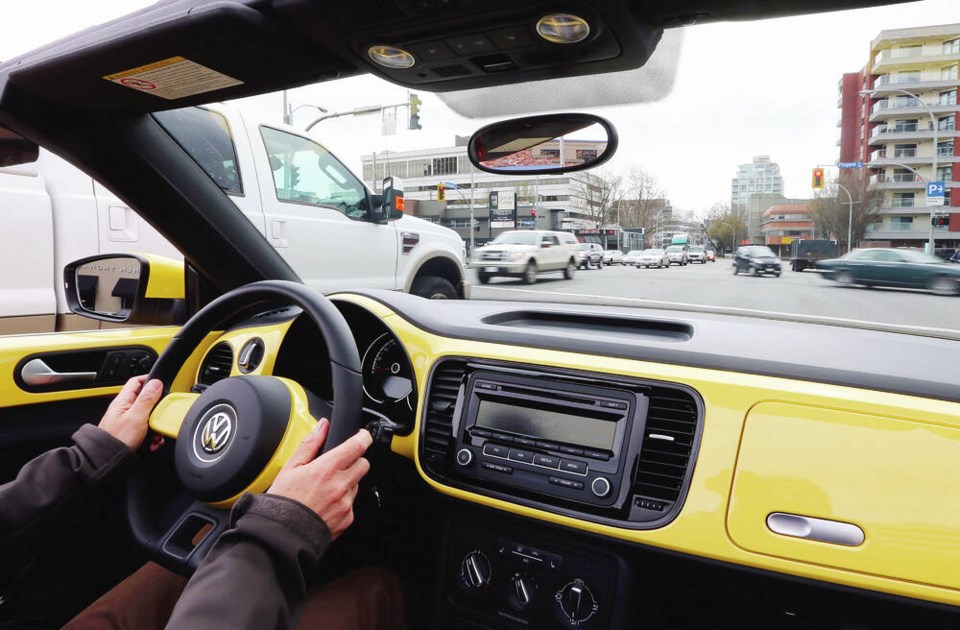Spring is now slipping into summer, and with the improving weather more and more young drivers will be chomping at the bit to head out on the road, or pleading with parents to get them out for some practice and take them to the motor vehicle centre to take their driving tests.
Setbacks from COVID have no doubt increased both the frustration and demand to get behind that wheel and experience the freedoms that young drivers often crave.
With this type of pent-up demand, it becomes more important than ever for the adult drivers to stress the importance of good driving. It’s truly a matter of life and death.
Between now and Labour Day is the most dangerous period for a young driver to be behind the wheel. That’s because the summer is filled with leisure activities — graduations, summer festivities, parties and plenty of pleasure trips. In other words, it’s a time with tons of distractions. And complicating all that is the sad reality that many of these activities for youth often involve alcohol and/or drugs.
Scores of studies point to the symptoms about why it’s so dangerous for a new driver to be behind the wheel, but it all boils down to two simple factors: Immaturity and inexperience.
Those two basic factors lead young drivers into a host of critical driving errors. In no particular order, some of them are:
Failing to wear seatbelts. Transport sa国际传媒 says that 93% of us use our seatbelts. For the 7% of those who don’t, they account for 40% of the fatalities in vehicle collisions.
Distractions from passengers. It’s a rite of passage for young people during the summer to gather up friends and hit the beach or go to a party. But post-crash analyses consistently show that having even one passenger in a car increases the crash risk — in some cases up to 40%. sa国际传媒 has some of the toughest rules in North America for learning drivers who carry passengers, with good reason.
Summertime drinking. According to Mothers Against Drunk Driving, summertime is the worst time for youth drunk driving. Nearly half of all youth drunk-driving deaths occur during the summer. Summer also accounts for 40.8% of all youth drunk-driving injuries.
Driving at night. Many youth car crashes occur in the early evening. The roads have cleared off, leading to a false sense of confidence coupled with that lack of experience with reduced visibility.
Speeding. New drivers often mistake an open road as an invitation to speed up and “see what this thing can do.” In many instances, they have overdriven their own ability to react to sudden hazards, or have overdriven the physical limits their car needs to brake or corner.
Drowsiness. Driver fatigue is a major cause in highway crashes. Young people like to push limits in all aspects of life, like we all did. They can fail to realize because of their lack of experience how tired they actually are — and a beer or joint or two just adds to the problem.
Lack of practice. Would you be able to make the soccer or volleyball team or the band if you only did the absolute bare minimum of practice? Probably not. Yet many people try to get through the learner driver period with the minimum of required hours behind the wheel. Practice equals experience. The more you practise any skill, including all those required to drive a car, the better and safer you will be.
What, then, are the most important things adults can do to shape young people into good drivers?
For one, be a good role model. By consistently displaying good driving habits, exhibiting courtesy and patience, you are setting the bar for young drivers. They are actually watching your every move, despite being plugged into whatever device they have on them.
Next, recognize that you might not be the best teacher. Professional driving instruction avoids those wonderful inter-family “discussions” that often happen when trying to tell young people what they should be doing. Professional instructors also prevent the unconscious habits you’ve developed over years of driving being passed onto young people.
Finally, if your young person is just a passenger on this trip, make sure both of you know who will actually be doing the driving.
It might cause some embarrassment to ask those questions. So what?
I’d rather find out beforehand that their friend only has a learner’s licence and is not allowed to be driving with anyone other than an adult, than find all of that out after a knock on the door by the cops at 2:30 in the morning.



